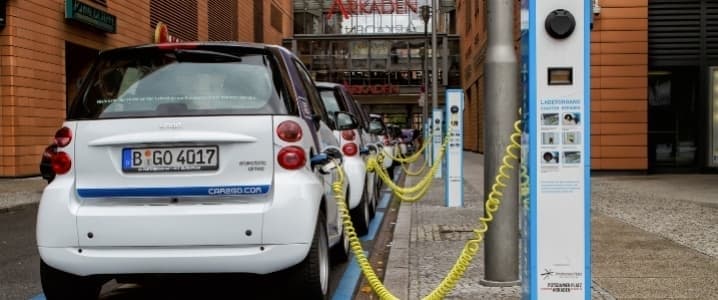Enthusiasm among drivers is lacking about autonomous vehicles and even electric cars, J.D. Power’s latest Mobility Confidence Index has revealed.
The results of the survey would be surprising—and bordering on shocking--for the proponents of EVs and all the headline space these vehicles are getting, with analyst forecasts for their adoption overwhelmingly optimistic. Unlike them, consumers are not as optimistic about the future of plug-in cars and self-driving vehicles.
According to the survey, electric cars scored a mobility confidence index reading of 55 on a scale of 100. Self-driving cars scored even lower, at 36 points, which would hardly be a surprise since this technology has yet to mature, and developing trust in it would be a long process.
“Out of the box, these scores are not encouraging,” said J.D. Power’s executive director of Driver Interaction & Human Machine Interface Research. “As automakers head down the developmental road to self-driving vehicles and greater electrification, it’s important to know if consumers are on the same road—and headed in the same direction. That doesn’t seem to be the case right now. Manufacturers need to learn where consumers are in terms of comprehending and accepting new mobility technologies—and what needs to be done.”
Indeed, the results are worrying, especially for EVs which have been hailed as the drivers of a transport revolution. According to the survey, there are still a lot of people who wouldn’t buy an EV: just 39 percent said they would buy one. Even more people don’t believe EVs are as reliable as ICE cars: 51 percent. One thing the majority of respondents in the survey were positive about in EVs was their beneficial effect on the environment.
Among the top problems noted by respondents were the length of time it takes an EV to charge and the length of its range. According to the majority, the former needs to be shortened and the latter extended before they would consider buying an electric vehicle.
By Irina Slav for Oilprice.com
More Top Reads From Oilprice.com:
- Oil Trapped In Narrow Price Band
- A Surprising Innovation In Energy’s Hottest Market
- OPEC Oil Production Drops To Eight-Year Low


















They sell themselves. A fact that's saved Tesla a billion on advertising.
Also this survey confirms that potential EV buyers are looking for longer range vehicles. Specifically they are looking for 300 mile range vehicles. This is up considerably from a few years ago when most automakers though that 100 miles was adequate range. Tesla spotted this early on and now all three models (S, X and 3) have configurations with range in excess of 300 miles. The Long range Model S sports a 370 mile range, while the affordable Model 3 has a 330 mile range. Other automakers are trying to catch up.
This survey intends to continue on a quarterly basis. So in time we will be able to see these scores shift. So we're starting out at a good place, huge acceptance for a product class that has only a few percent of the market. These numbers will rise as new and improved models come to market and as more people get basic exposure to the technologies.
But the bigger picture is that neither a post-oil era nor a peak oil demand or an imminent energy transition will see the light of day throughout the 21st century and far beyond. The reason is that all of them are myths.
Global investors in renewable energy and electric vehicles (EVs) should heed three pivotal principles.
The first is that there will be no post-oil era throughout the 21st century and probably far beyond. Oil will continue to reign supreme all through.
The second principle is that there will be no peak oil demand either. While an increasing number of EVs on the roads coupled with government environmental legislation could decelerate the demand for oil, EVs could never replace oil in global transport throughout the 21st century and far beyond.
The third principle is that with global oil consumption exceeding 100 million barrels a day (mbd), the notion of an imminent energy transition looks like an illusion.
Some experts are now saying that a widespread EV use could spell the end of oil. The tipping point, they reckon, is 50 million EVs on the roads. This they believe could be reached by 2024. However, 50 million EVs could hardly make a dent on the global demand for oil let alone replace it.
Currently, electric and hybrid cars combined number under 4 million cars out of 1.477 bn ICEs on the roads worldwide in 2015, or a negligible 0.27%. The total number of ICEs is projected to reach 2.0 bn by 2025 rising to 2.79 bn by 2040 according to US Research.
In 2018 the world used 36.4 bn barrels of oil (bb) of which 73% or 26.6 bb were used to power 1.477 billion conventional cars around the world. Bringing 50 million EVs on the roads will reduce the global oil demand by only 0.9 bb, or 3.4%. This will neither be the end of oil as some experts are suggesting nor a tipping point.
Dr Mamdouh G Salameh
International Oil Economist
Visiting Professor of Energy Economics at ESCP Europe Business School, London